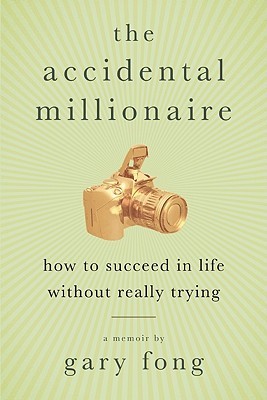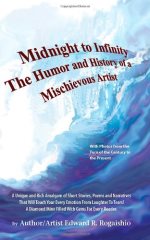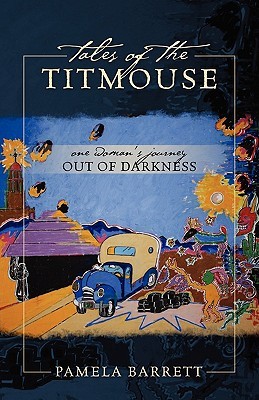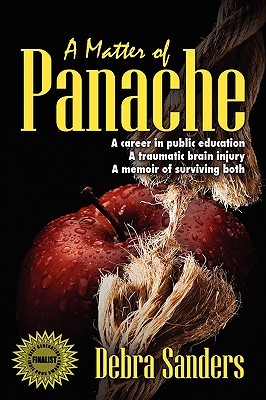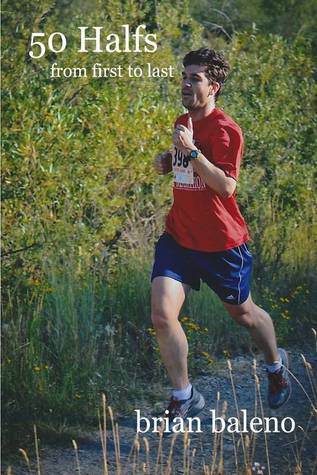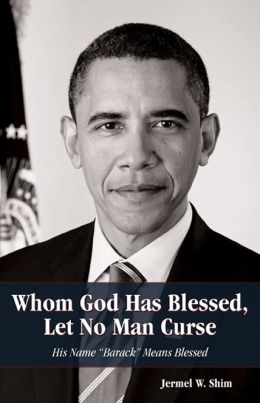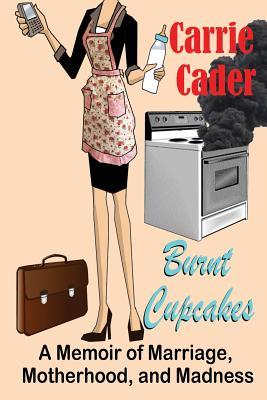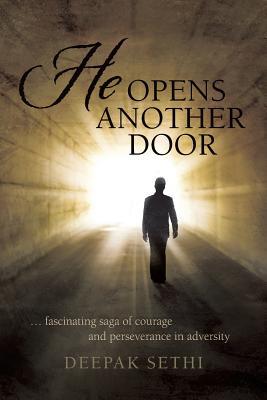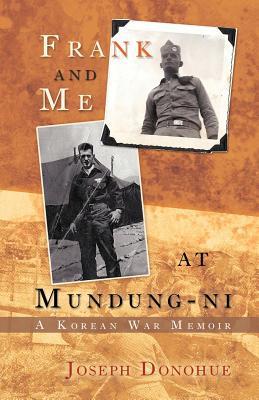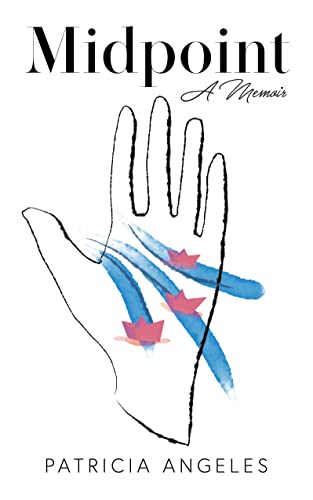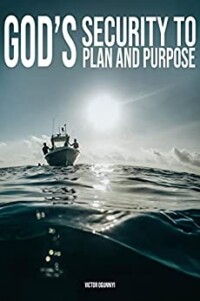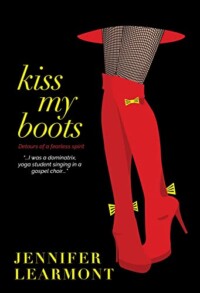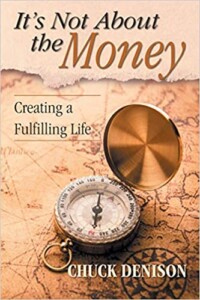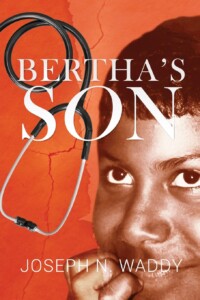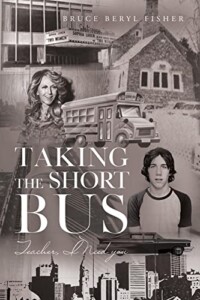The Accidental Millionaire: How to Succeed in Life Without Really Trying
Title: The Accidental Millionaire: How to Succeed in Life Without Really Trying
Author: Gary Fong
Publisher: BenBella
ISBN: 9781933771915
Pages: 264, Paperback & Kindle Edition
Genre: Memoir/Self-Improvement/Business
Reviewed by: Gary Sorkin, Pacific Book Review
Book Review
It certainly is not an accident Gary Fong has succeeded in life, and has earned millions of dollars. A person of his wit, self-confidence, and integrity exemplifies the “American Dream” in our “Land of Opportunity.” Opposed to ego flaunting books of success by guys like Donald Trump, Gary Fong takes the humble route, full of self-mockery and modest remarks, as he casts his fate to the wind to free himself and let life lead his path. He is very unlike the Jack Welch type of millionaire that professes the full control of cognitive evaluation of risk approach, or the scores of books offering money making formulas investing in real estate.Gary Fong calls his auto-biographical book “A Memoir” – I call it fantastic. From his self-awareness of his own destiny as a child, he writes of whimsy incidents of childish buffoonery, and mischievous clowning behavior. What won me over early on in his book was as a kid he writes about taking lint balls off of his mother’s sweater while she was napping and carefully dropping them in front of her nose while she inhaled. “Whoosh they were gone,” he writes. That slapstick humor brought an outburst of actual laughter to me as his comic timing and use of onomatopoeia were impeccable. Later, throughout the course of his changing career from pre-med student to professional photographer, he generously describes step-by-step the creative process of his genius. He finds a need and fills it. In doing so there normally exists a fine line between conceit and clarification; however Gary Fong leaves no impression of any priggishness. He is very honest, modest and really a funny guy!
The Accidental Millionaire: How to Succeed in Life Without Really Trying is a must for all young adults, college students, and just about anybody with a desire to learn about taking control of one’s life in a freelance sort of way. You don’t need to be born with a silver spoon in this country to attain the fruition of success. Gary Fong certainly wasn’t. Attitude is everything, and Gary Fong took responsibility for his own life early on, as a child, setting in motion a plan for his survival. As capability comes first, scalability followed. Once he was able to provide for his own needs, his savings account grew, his light-hearted attitude became contagious to those around him, and the world became his oyster. What would not be “an accident” is if his book were to sell millions of copies! There he goes again – another million dollars, without really trying.
Midnight to Infinity: The Humor and History of a Mischievous Artist
Title: Midnight to Infinity: The Humor and History of a Mischievous Artist
Author: Edward R. Rogaishio
Publisher: American Book Publishing
ISBN: 1589825047
Pages: 324, Paperback
Genre: Biography/Humor/Poetry
Reviewed by: Gary Sorkin, Pacific Book Review
Book Review
Edward R. Rogaishio writes a collection of poems, stories and thoughts in a rather unconventional genre in Midnight to Infinity, The Humor and History of a Mischievous Artist. Part auto-biography, part poetry, part diary, part philosophy, his voice is universally human. A sensitive, caring, loving man, with a depth of life experiences and an intrinsic appreciation of nature and beauty, Edward R. Rogaishio takes the reader into his world. A world that occupies his mind at times during the twilight of an evening when his body is tired but his thoughts are too stimulating to succumb to fatigue. A time when the unhurried events of his daily schedule allow for the freedom of his cognitive adventurism; boundless journeys into the past and ponderance of his future. A time when he is touched by his family, his ancestors, and friends – enjoying the reunions and fanciful exchanges in his mind. He thinks in a dimension where his words are often put into a literary pentameter with clever associations and rhymes – a wordsmith’s factory with thoughts going in and poetry being extruded. All this, and more, make up a robust 300 page diversity of humor and history, from indeed the mind of an artist.Ed is a mensch, a real person with an undeniably spirited love of life. His narratives captivated me, especially his observations while traveling behind the Iron Curtain on goodwill missions of cultural exchange. Having my own personal heritage stem from Lithuania and Russia, and understanding much of the history, he shed an immense amount of clarity to my own understanding my ancestor’s plight.
If you think of his stories as a picture frame, then his poetry is his art, making his book become a masterpiece. A work of art that adorns a home library rather than a wall. Besides being an accomplished painter of which his cover abstract art of blue and white waves illustrates, Edward R. Rogaishio’s poetry has an illuminating and uplifting theme to most of it. Oddly whimsical, in a way reminiscent of the work by Ogden Nash, his poems take on clever and quite unpredictable prose, at times teasing the reader as to thinking what possibly could be his next line.
So when you consider the sheer volume of his epic quality poetry, his heart-felt stories, his observant narratives and add in a score of photographs and illustrations, you get a book – a unique book – a book of a life, the life of what all will call “a friend” once having read. To Mr. Rogaishio, I toast you with a glass of Stolichnaya in my left hand, and with my right hand pointer-finger snapping my lower jawbone down by the base of my ear by my neck, and I salute you with a Nazdarovia.
Learning to Lean: The Journey
Title: Learning to Lean: The Journey
Author: Louise (Barnes) Thompson
Publisher: Louise (Barnes) Thompson
ISBN-10: 0615293085
ISBN-13: 9780615293080
Pages: 172, Paperback & Hardcover
Genre: Memoir/Christian Non-Fiction
Reviewed by: Nicole Sorkin, Pacific Book Review
Book Review
When I read the story of this autobiography, it must have been extremely painful to revisit those memories, but at the same time very therapeutic and rewarding.Louise (Barnes) Thompson writes with an authentic voice. She writes about her life struggles, triumphs, and adventures through a series a vignettes of chapters in this heartwarming book. Opening the book and starting Louise (Barnes) Thompson’s journey, you soon find that Learning to Lean really is just a series of short stories that were just woven together to illustrate a lifetime of events. One reads each story independently and understands the connection to others, allowing the reader to fall in love with the characters which happen to be “real.”
Some of the stories are set in the 1940’s and 1950’s, a time when life was much more simplified and family values actually had more meaning. The author’s ability to bring you back to that era was exceptional. As you read, you will be able to put yourself in her place with this very down-to-earth and an open confession. Louise Thompson was born in 1943, still reaping the effects of the Great Depression. Money was sparse and hard to come by and jobs were very limited in those days. Thompson and her family certainly had their share of challenges, tragedies, and personal lost. However, this is a family who puts God first. Believing strongly in the power of prayer and with such strong faith in God, the Thompson family was able to overcome many hardships, including drug addition, abuse, and grieving the lost of loved ones. God gave them the strength and the courage to remain strong and pull through some of the toughest battles imaginable. It is often said that God won’t give you anything that you can’t handle. I remember reading this particular Bible verse when difficulties would arise in my own life. There hath no temptation taken you but as is common to man: but God is faithful, who will not suffer you to be tempted above that ye are able; but will with the temptation also make a way to escape, that ye may be able to bear it. 1 Corinthians 10:13. This Scripture puts it all in perspective.
As I read Learning to Lean: the Journey, I learned about strength and hope. The author tells her stories through her eyes with vivid attention to events both good and bad. It is complemented with some colorful photographs from the lives of the families making it even more gripping and intriguing. The pages are packed with moving stories that will trigger nostalgia and personal memories. I found Learning to Lean, one that I grew attached to while turning the pages. I felt sorrow once the story ended, as a book with such authenticity is a rare find. I would recommend this book to anyone who is a believer or anyone who wants to renew their own faith in God. One of the author’s main messages in this book is to trust, pray and put God first. God will help you overcome any hardships in life and make you even stronger. All you have to do is lean on Him.
Sybil’s Choice
Title: Sybil’s Choice
Author: Iris Sechriest
Publisher: iUniverse
ISBN: 144016858X
Pages: 173, Paperback
Genre: Non-Fiction/Biography
Reviewed by: Gary Sorkin, Pacific Book Review
Book Review
It takes inner strength, courage and conviction to do what Iris Sechriest has done; chronicle the events of her daughter’s fight with cancer. This is not an ordinary book, the subject deals with unyielding determination and faith. It shows the difference caregivers can make how positive attitudes promote healing. Sybil’s Choice is certainly a necessary book. First it is a tribute, a memorial, to Sybil, bringing to the reader the true story of a real person from the small town of Forest City, North Carolina. Secondly it was a necessary labor of love for Iris to write this book to help cope with her loss. Finally it is necessary to have all that has happened not be lost but be both instructional and inspirational to those of us that may find ourselves or loved ones in such an unfortunate position.For me, I found it often easy to slip from book reviewer to empathic reader; from a witness of Sybil’s demise to remembering my own family’s similar circumstances. From the true story of Sybil to the story of my losing my mother after her fight with cancer. As few of us live a life unscathed by medical tragedy, Sybil’s Choice brings the sober reality of surreal decisions people are faced with in the light of such devastating alternatives.
Iris Sechriest has an amazing emotional constitution; deeply embedded in her faith however noticeably she doesn’t take her daughter’s demise as an opportunity to preach her personal belief. Her writing is as objective as a journalist, and as honest as a witness under oath. She respectively names and identifies the scores of doctors, places, and procedures Sybil had undergone. She honestly assesses the contribution each has made to guide them through their ordeal. She has shaped her book to become a tool for others undergoing similar choices.
Sybil’s Choice is a terse 173 pages with a thought provoking cover photograph of a woman walking towards a light at the end of a tunnel. Iris Sechriest stays “on topic” throughout her book, as if she were to digress into telling stories about Sybil this would no doubt rival War and Peace in word count. There is a lovely high school picture of Sybil at the end of the book, revealing her charismatic smile and intelligent eyes.
For any person or family faced with a malignant diagnosis, this book is a must read. Signed books are easily available by mailing a check for $16.95 plus $4.95 for shipping to: Iris Sechriest, 166 Carolina Avenue, Forest City, NC 28043.
Tigres of the Night
Title: Tigres of the Night
Author: Robert W. Howe
Publisher: Xlibris Publishing
ISBN-10: 1413415024
ISBN-13: 978-1413415025
Pages: 373, Paperback & Hardcover
Genre: Biography/Non-Fiction/Spirituality
Reviewed by: Nicole Sorkin, Pacific Book Review
Book Review
The life of an Amazonian tribal community is brilliantly brought to understanding by the writings of Robert W. Howe as he followed the true story of Juan & Amalia Arcos, lay-missionaries and naturalists living in the rainforests along the Amazon.In the mid 1900’s Juan Arcos studied to become a priest under the direction of Father Peter Vosa, a man who had guided him for the past fifteen years of his life. With much prayer and careful consideration, Juan eventually decided not to become a priest. This decision was difficult for him, but God lead him to become a teaching missionary instead. He felt strongly that God wanted him to work with the local tribal people called the Shuar, because he had already learned their language as a child and felt connected on a spiritual level.
Juan and Amalia’s goal was committed to lead a life dedicated to God and His people, the Shuar. They are simple, humble people. Being once thought as violent, they are in fact generous givers, welcoming and kind. In Howe’s book he describes how the Shuar talk with the dead, balance the needs of their men and women, keep peace or wage war, practice the ancient art of shamanic journeying, and learn from the sacred teacher plants (ayahuasca, datura, chicha, and tobacco) and many more tribal customs. He provides a view into the lifestyle of a culture from another time, in a distant place, the lives within the Amazon jungle.
Tigres of the Night really has some powerful messages that are most welcome at a time when we all need to feel a sense of strength, courage, healing, and love. While the book’s vivid imagery invites us to experience the lush, tropical splendor of the Amazon Rain Forest, the real value lies in the rich wisdom imparted by the Shuar people.
It is very appropriate to have picture of a cascading waterfall on the front cover of this book. To the Shuar people, waterfalls are sacred. If you need strength, answers, or wisdom, a man will visit the waters in order to get in touch with his soul and find direction.
Robert W. Howe’s writing tells of indigenous wisdom, different ways of life, and is especially focused for those who are already missionaries or those who wonder if God may be calling them. This book would also be a great resource for your pastor and your Church’s library. He created a masterpiece that lives on in one’s heart for a lifetime. For the Shuar, their homeland is a place of wondrous beauty and great danger. It’s a place where anacondas lurk in the rivers and jaguars prowl at night, Tigres of the Night is a book that tells their story. You will find that Tigres of the Night includes author’s notes, an appendix, and a bibliography for further reading.
Tales of the Titmouse: One Woman’s Journey out of Darkness
Title: Tales of the Titmouse: One Woman’s Journey out of Darkness
Author: Pamela Barrett
Publisher: Outskirts Press, Inc.
ISBN-10: 1432748343
Pages: 234, Paperback
Genre: Christian Non-Fiction/Memoir/Self-Improvement/Spirituality
Reviewed by: Nicole Sorkin, Pacific Book Review
Book Review
Pamela Barrett writes about her personal struggles with drug addition and how she eventually was able to free herself from this destructive lifestyle in her book Tales of the Titmouse: One Women’s journey out of Darkness.In the third chapter Pamela decides to be with Cristobal, a man whom she hardly knows but is very much connected in the drug world. She introduces Cristobal to her parents who quiz him up and down relentlessly about himself, his family and his past. Both parents are certainly not satisfied with the answers and do not trust Cristobal, but ultimately Pamela decides to start her life with him and they move to Mexico.
This decision changes Pamela’s life. Drugs become a part of her life. The more she is with Cristobal the more she begins to see maybe he isn’t as honest as he portrayed himself. Cristobal makes big promises to Pamela. He said he would give her $20,000 to study hairstyling in France and she will be able to have her own hair salon. Pamela’s life began to spin out of control with moving multiple times, breaking up then making up, studying New Age religious beliefs, and making poor decisions all influenced by drugs.
Following Pamela Barrett through her struggle with addiction and her relationship with Cristobal is as heart wrenching as it is compelling. By revealing in detail her most inner thoughts and experiences, Pamela takes us on a harrowing journey through a relationship torn by drug addition, mental abuse and deceit. It is a long and painful process she and many others have been forced to endure. Pamela’s eventual triumph over these issues is a testament both to Pamela’s strength and her devotion to her values. The author’s success, words of advice, and hope are an inspiration to everyone.
Pamela would have never been able to conquer her addition if it were not for her faith in God and being obedient to His word. This book is both inspirational and educational.
A Matter of Panache: A Career in Public Education
Title: A Matter of Panache: A Career in Public Education. A Traumatic Brain Injury. A Memoir of Surviving Both
Author: Debra Sanders
Publisher: Outskirts Press, Inc.
ISBN-10: 1432728164
Pages: 332, Paperback
Genre: Memoir
Reviewed by: Nicole Sorkin, Pacific Book Review
Book Review
A Matter of Panache: A Career in Public Education. A Traumatic Brain Injury. A Memoir of Surviving Both opening chapter starts in Brevig, Alaska where Debra Sanders began her life as a “Village-hopping, tundra-trekking school psychologist.” Debra writes about her many exciting experiences in Alaska. Some outrageously funny, some frightening, some obstacles that face her path which force Debra to think quickly on her feet and make split second decisions. Brevig, Alaska is lacking in modern day living amenities that we all take for granted.
Debra Sanders’ life changed instantly when she got in a serious car accident. Initially she didn’t think anything was wrong. She felt perfectly fine, except for a slight pressure feeling around her head which she wasn’t too concerned about, considering that everything else felt normal. However days later things began to change drastically regarding her ability to think clearly and to comprehend normal every day tasks. That is when real concern came over Debra, realizing “Yes, something is indeed terribly wrong.”
The nurses told Debra she just had a mild concussion, and she just needed a little time to heal and she would be fine. Progressively things were getting worse with Debra’s health. Debra had so much fear because nobody told her what to expect. She was never given a pamphlet or any relevant information on brain injuries. She was sleeping endless hours throughout the day. When she would awake she would still be tired. She rarely recognized visual landmarks and faces that she should have recognized and remembered. Light was becoming a problem for Debra’s eyes and also her head. She had to manage the light by having blankets over the windows. Often her sleep would be interrupted by intense, blinding headaches that would leave her rocking in bed with pain and torment. Every small little task was a struggle for Debra to do. It would sometimes take hours just to do one simple assignment, not to mention dealing with all of the emotional aspects of having a brain injury.
Debra’s recovery process was long and arduous which is a non-stop process. She had to relearn everything, which was a constant battle. You will feel her raw emotions of pain, anger, sadness, and most importantly you will feel her strength to live and fight hard to regain her independence. You will get to know a resilient lady who has a soft spot in her heart for children. I sincerely believe that Debra fought hard to get healthy and whole again for the children so she can continue to help them. You will get to know her wonderful support system of close friends who helped Debra through this exhausting journey. You will learn about her travels to Colorado, Utah and at Fort Carson.
Debra’s story is not meant to shock or seek pity, and is not a story of complete triumph–although there is plenty of redemption. For me it is more a story of acceptance, love, and commonality with all. She takes the reader through the darkest moments of her life into a place where peace and happiness come to fruition. This book is candid but not brutal.
Everyone will enjoy this book. The reader will learn a great deal about themselves and life. I certainly did. There isn’t any person for which this story wouldn’t apply to, we all experience trauma and pain –its how we choose to live with it that is the ultimate quest.
Yours, from Wyoming
Title: Yours, from Wyoming
Author: Robert W. Howe
Publisher: Morningsong Publishing
ISBN-10: 0967826705
Pages: 188, Paperback
Genre: Non-Fiction/Western
Reviewed by: Gary Sorkin, Pacific Book Review
Book Review
Some people simply breathe the air; others savor the aroma and fragrance in each and every breath. Some people look out at a landscape and see mountains, fields and streams; others see minute details of weather, life, beauty only a trained eye such as the curator of a museum would depict from a masterpiece. Some people would say “Hi” and smile at a stranger in passing, others lock eyes and share grinned greetings forming an intimacy and thus getting to know the person during the encounter.To Robert W. Howe, the latter comes naturally, instinctively, and passionately. In his book entitled Yours, from Wyoming he ardently comprised scores of life’s observations, meticulously articulated, in letters he wrote to others over years past. He weaved his experiences into a fabric of a description of humanity with almost divine grace and understanding. A fabric that can be woven into a poncho, draped over a cowboy mounted on horseback, to keep the chill off from the prevailing winds in the wilderness.
Categorized in seasons and months, his book brings the reader into his life, his world, his beliefs and most impressively as seen through his eyes. More so than most authors, Mr. Howe’s excellent writing and skilled observations create a voice in a reader’s mind of a humble man of extraordinary genius, a follower of God’s teachings, a master of communicating, and a deep romantic lover of people. His unpretentious skill of gaining respect from others by giving the utmost respect transcends just humans, but in a cowboy sense cascades to horses, livestock, pets and the wildlife he encounters. With the honed skills of a mountain man, he is a polished gentleman just the same. A person the reader will want to get to know, whilst reading begin to know, and when finished remember him as a friend they knew.
I found this book to change me, perhaps the highest compliment I could give to a literary piece. It made me appreciate so much more by slowing down time, and undoing knots of confusion and pressures one faces to get to a pace of cowboy time, shepherd time, wildlife time, seasonal time, or even geological time. Uniquely printed using a landscape binding with portrait pages imprinted, yielding 4 pages per view, its published style somehow physically reminded me of trips to the wide open vistas of mountainscapes, fields and plains, rivers, and large sections of sky. The writing is gilded with a beautiful portfolio of illustrations by Vel Miller.
Like a song or a scent can trigger memories, for me landscapes now will trigger in my mind’s eye a higher appreciation of the minutia of details, thanks to my new wonderful mentor, Mr. Robert W. Howe.
50 Halfs from First to Last
Title: 50 Halfs from First to Last
Author: Brian Baleno
Publisher: TQR Media
ISBN: 978-0615586182
Pages: 158, Paperback/Kindle
Genre: Non-Fiction/Young Adult
Reviewed by: Erin Lund Johnson, Pacific Book Review
Book Review
5o Halfs, from First to Last by Brian Baleno is a book with a unique premise and a lot of heart. It is the story of a former soccer player and recreational runner who sets himself the goal of running a half marathon in each of the 50 United States. I must admit, it is a goal and a book topic I’ve not come across before. Fellow athletes will relate to his descriptions of both runner’s highs and cramps, and those familiar with marathon races will understand the context. I’m not athletic, so what spoke to me most in this book was the author’s unfolding personal story, insightful reflections, and impressions of new places.Balero begins by introducing the reader to his youth as a soccer player and the choice he faced in college to make it a career, or pursue a different course. He chose to pursue a degree program instead of sports, but though he gave up soccer, he retained recreational running for fitness and stress relief. Originally, he ran his first half marathon as a means of training for running a full marathon. Racing the marathon itself exhausted him and he was convinced he’d never do it again! The desire to run half marathons in all 50 states crept up on him slowly as he was drawn into the experience of improving his running times, and running in different locations and conditions. Once decided upon, the venture took him nearly two years to complete.
The author really opened himself up to the fullness of each half marathon experience, both in place and moment. He freely shares his personal insights and impressions of new landscapes and vistas, different people, past memories, and feelings of gratitude for what he’s had in his life. Baleno is very comfortable sharing from the heart, and this comes through on each page. His writing flow also picks up as the book progresses, finding its pacing and little delicious turns of phrases to carry the story along. I enjoyed his descriptions of the cities he ran through, the ocean and mountain views he took in, and exchanges he had with the people he met during his travels. His sense of gratitude for the goodness in his life is genuine, and his stories depicting his relationships with his family and girlfriend are heartfelt.
While this could have been a flat reiteration of an athletic achievement full of runner vernacular only understood by fellow runners, it is instead a personal memoir of a goal sought and worked towards, and all the personal experiences taken in along the way. The visual layout of the story progression is also fun; as new states are run through, they are drawn into their respective locations in a US map, gradually filling in and completing the picture as the story unfolds, like a jigsaw puzzle. Even the book’s back cover tells the author’s story, through a collage of the runner’s numbers he wore in the half marathons. One thing which surprised me was that his running times did not drastically improve over the half marathons. He notes his running times for each race, and they seem to stay within the same 10 minutes or so of each other. I had expected the times to gradually reduce as he ran more races, thinking this would be a logical outcome of more running experience. I appreciated, though, how his times altered with differing conditions of weather and terrain.
This is a unique story concept with a lot of potential, engagingly told with a very personal touch. Readers need not be athletes to enjoy and relate with his process of goal setting, experience with travel, impressions of new places, and insights gained from encountering new people. The author opens his heart to his readers on every page. I enjoyed taking this trip with the author.
Persona Non Grata with Diabetes
Title: Persona Non Grata with Diabetes
Author: Paul Cathcart
Publisher: Paul Cathcart
ISBN: 978-0-9576899-4-7
Pages: 403, Paperback/Kindle
Genre: Memoir/Education/Health
Reviewed by: Tiffany Ezuma, Pacific Book Review
Book Review
Diabetes is not an “en vogue” disease. It is not the kind of disease that gets a huge product campaign like breast cancer, nor is it portrayed as tragic and other worldly diseases like the AIDS epidemic in Africa. The public perception of diabetes is the polar opposite of the causes the media likes to promote. Instead of being seen as victims of illness, those millions living with diabetes are often seen as being lazy and unwilling to control their disease with a “simple” diet and exercise regimen. Paul Cathcart’s memoir stands to change that.In writing “Persona Non Grata with Diabetes,” Cathcart opens the door a crack to shed some light on what it means to live with the disease. Beginning in the present, Cathcart starts at the end of his story, after years of testing, quick fixes, health scares, and doctor’s visits failed to manage his illness. But more than managing his illness, Cathcart seeks to the make others understand what it means to live with diabetes and see that it is a “state-of-being” as much as it is a physical problem, something those of us not conflicted with the illness fail to see.
With a quick wit and a sharp tongue, Cathcart weaves in and out of time to create a portrait of a young man trying to make it through life with the threat of his poor health looming in the background. He describes his childhood in Glasgow, Scotland growing up in a working class family with a single mom, who creates the picture that diabetes can and does happen to “normal,” everyday people. People that you went to school with, the first boy you kissed, or that friend with the great taste in music. The author has such a clear ear for dialogue and language that the reader can almost hear the words coming off of the page particularly when he describes his condition as “dying faster than I’m living.”
Throughout the memoir, Cathcart italicizes food items and restaurants such as “Rolo Ice Cream” and “Starbucks,” a technique used to signal the reader of how pervasive and accessible junk food is in Western culture. Seeing so many italicized words on the page is a frequent reminder to the reader of how hard it must be to be constantly reminded of everything you aren’t supposed to have as a healthy, fit person. For those of us not living with diabetes, it’s easy to take indulging in junk food for granted but it’s not life and death serious as it can be for a diabetic.
With the descriptions of his health scares and their adverse affect on his life, it would be easy to take Cathcart’s memoir as a sob story. But in-between the all too real descriptions of his illness, Cathcart keeps his humor and welcomes readers, both diabetic and non-diabetic, with the understanding that you don’t have to face life’s struggles alone. This book makes for an especially good read for those struggling with the sickness but it also serves as a good educational piece for those without.
Whom God Has Blessed, Let No Man Curse
Title: Whom God Has Blessed, Let No Man Curse
Author: Jermel Shim
Publisher: Infinity Publishing
ISBN: 0-7414-9628-3
Pages: 218, Paperback/Kindle
Genre: Current Events & Politics, Race Relations, Biography, Spirituality
Reviewed by: Kimberlee Hicks, Pacific Book Review
Book Review
If you ask the average white man or woman living in America if racism is still a significant problem in today’s society, a large percentage of them would say no. If you ask a person of color the same question, you’d get a completely different answer. Barack Obama emerged victorious from the 2008 election, the first African-American president of the United States. In a time when laws restrict minority voting abilities and immigration is a hotly contested item, the timing could not have been better for a man of Obama’s unique experience to take the stage. His interracial background made him the ideal candidate to bridge the gap between the races and move them forward into a new period of enlightenment.It would not be an easy task, as President Obama would find himself facing many detractors; their vitriol more personal and more vicious than that aimed at any other president before him. In his book, ‘Whom God Has Blessed, Let No Man Curse’, author Jermel W. Shim gives a detailed account of the myriad ways in which the president’s foes have attempted to thwart him throughout his administration, identifying the clear reason for their motivation as nothing other than racism.
His claims are compelling; no matter how numerous or terrible their failures, no other president has faced the determination of their opponents to see them fail at all cost, or outright opposed at every turn, even on issues beneficial to their cause. Nor has any other president been the subject of such personal invective and defamation, and the racially charged nature of their attacks – questioning the circumstances of his birth, and his religion – expose just how far we still have to go as a nation. That few of his supporters speak against this behavior only emphasizes the author’s point that while we have finally evolved to a place where we can elect an African-American president, there is still a vein of racism in our society we need to address.
The author has faith though, not just in President Obama’s ability to overcome whatever obstacles his detractors throw at him, but in his divine calling to his elected office. The title of the book is something Shim takes literally – that the president is a blessed man, and his successes are due to a destiny preordained for him by God. Those who attempt to destroy him are doomed to fail because of this.
Because of the large spiritual focus, this book’s best audience would be those of a similar temperament, although the ideological rhetoric is sound. The author has a tendency to belabor some his points, and there are some obvious editing issues, but there is no denying his passion for the subject, nor his knowledge of politics, which makes him an excellent spokesman for the cause.
In the closing chapter of his book, Shim outlines the Buddhist code of living known as the Noble Eightfold Path, guidelines for conducting your life in order to achieve happiness. Politics seem to be more divisive now than ever, our system of checks and balances bringing us to a standstill instead of serving the purpose for which it was intended. Shim not only identifies a major problem in the system, he provides us with an answer. It may not be a simple one, but if everyone abided by principles that emphasize integrity instead of dishonesty, our country would be better for it.
Anyone with an interest in politics and race relations who believes in fate will find their faith for the future of our country bolstered by this book’s inherent trust in President Obama’s destiny.
Burnt Cupcakes-a Memoir of Marriage, Motherhood and Madness
Title: Burnt Cupcakes-a Memoir of Marriage, Motherhood and Madness
Author: Carrie Cader
Publisher: Mirror Publishing
ISBN: 9781612252308
Pages: 460, Paperback/Kindle
Genre: Non-Fiction, Memoir
Reviewed by: Suzanne Gattis, Pacific Book Review
Book Review
Boy, can we relate! There is no working mother in the world that can’t at least relate a little to Carrie’s meltdown in the kitchen when the pressures of a career, raising a family, being a spouse and just being alive get the best of her. The fact that she relates the story in such a fun, quirky way not only rings true to the readers, but also tells us there is hope out there to be able to eventually find humor in those less than ‘sane’ situations. I actually took a pause and thought about how liberating it would be to just throw those cupcakes. From the first chapter, I couldn’t put this book down; I had to know what got her to this point where she had to finally vent her frustration on some innocent cupcakes!Cader’s memoir, Burnt Cupcakes-a Memoir of Marriage, Motherhood and Madness, struck a chord with me immediately. There was such an honest approach to something that many working mothers just don’t talk about. There is an air that appearances are more important than reality. And despite the title, it isn’t just a book for mothers or married women. I think we all find a point in our life’s where we have everything that we thought we wanted and realize that it’s not all that it was cracked up to be. Readers can relate to that moment where we really question is if we haven’t just completely lost it.
Written in a very candid manner, Carrie shares her struggles with perfectionism and control, as well as depicts an honest, though less than glamorous, portrayal of marriage and motherhood. There is an open dialogue about seeking help for problems that we cannot deal with on our own, which, with today’s stigmas, I appreciated. While reading the book, I could connect with her story and feelings, while wishing desperately that she would figure it out in the end. If she could do, so could I. In a way, this book should almost be in the self-help section. Just as Carrie learns to relinquish some control and change her outlook by just letting go, that poignant lesson is instilled in the reader. Focusing on what matters in turn brings focus to our lives.
Cader writes in a very concise, honest, and humorous manner, which made the book an easy read. She achieves not only telling the reader her story in an entertaining way, but she also tells the stories of millions of women out there.
Imperfect Circles
Title: Imperfect Circles
Author: Sarah A. Suzuki
Publisher: CreateSpace
ISBN: 978-1492289852
Pages: 460, Paperback/Kindle
Genre: Non-Fiction, Memoir
Reviewed by: Kimberlee Hicks, Pacific Book Review
Book Review
To Sarah, her bi-racial heritage has long been a burden. She identifies more with her mother’s close-knit European-American family than with her father’s Asian one – divided by circumstance that, as a teenager, she has little interest in discerning or understanding. Until a once in a lifetime reunion with her Japanese-American relatives sparks her curiosity and sends Sarah on a search for her lost roots that will occupy her for years.Tracing her family back to her great-grandfather, Sarah attempts to unravel the complicated web of her family history, made difficult by her relatives’ reticence or inability to speak about the past. “If only I could alleviate my grandfather’s fear that I would treat his memory in a careless way, judging before considering them with reverence”, Sarah says. It was a sentiment I shared, the more I read of her family’s experiences during World War II and beyond, as some of them suffered the indignation of interment.
After the bombing of Pearl Harbor on December 7th, 1941, 110,000 people of Japanese heritage living on the West Coast were moved out of areas designated as “military zones” by President Roosevelt, by Executive Order 9066 into internment camps. Sixty-two percent of them were American citizens. Others, like Sarah’s great-grandparents, were first generation immigrants, or Issei – ineligible for American citizenship. With the approval of the American government and the War Relocation Authority, generations of Japanese families lost everything, including, for many, their pride. When the war was over, the majority had nothing to move back to.
As Sarah combs through the stories of her relatives she begins to build a narrative of her family’s history, and learns more than she ever intended to in the process, including some things about herself. The author is a psychotherapist, and this is beautifully evident as she explores the ways each generation has been impacted by a single event. As a member of the fourth generation, Yonsei, it is suggested that she is among those who have a desire to know her history, and therefore the narrative of her own life story provided a satisfying continuity that bound those of her family together.
I am curious to know how she received a few of these narratives, which weren’t presented as though related to her, and for which she was not present. However, everything has a place here, including her father’s and grandmother’s mental illness – the story that affected me the most. ‘Imperfect Circles’ is an incredibly moving memoir covering experiences too often overlooked in an important period of history. Americans enjoy seeing themselves as the heroes of World War II, but without disparaging the good that was done, we can’t overlook the mistakes made, which is all too often the case. Sarah invites us into her family’s past so completely that you will be unable to help wondering what happened next when you put the book down.
He Opens Another Door
Title: He Opens Another Door
Author: Deepak Sethi
Publisher: Author House
ISBN: 978-1-4817-7169-6
Pages: 287, Paperback/Kindle
Genre: Non-fiction/Memoir
Reviewed by: Tania Staley, Pacific Book Review
Book Review
He Opens Another Door is the autobiographical account of the life of Deepak Sethi, a retired Brigadier General of the Indian Army and now professor of business studies and international management. Sethi’s memoir claims in its subtitle that it is a “fascinating saga of courage and perseverance in adversity,” and the claim is not made without truth. Deepak Sethi has lived a fascinating life. His memoir accounts several moments from his 31 years of military service—a career that made him a veteran of the India-Pakistan War of 1971, commander of an artillery regiment in a high altitude sector on the border of India and China, and the commander of an artillery brigade on the border with Pakistan. However, Sethi’s military career is not the only fascination. It is his strong faith and determination for success that carries this book. In his book, Sethi discusses his struggles to help his children succeed in their schooling and careers, his own academic pursuits, and the fateful day his destiny was changed—the day his wife fell ill—with as much fervor as his accounts of military intrigue. It is apparent from his memoir that Sethi believes all aspects of life should be approached with passion and integrity.As the title suggests, Deepak Sethi has a firm belief in God and that God has a plan for his life. Sethi’s religious background is in Hinduism, and while he states several times that he doesn’t consider himself a rigid believer, his book highlights a deep and abiding faith that someone is watching over him. His story is a refreshing take on religion. Rather than attempting to force an opinion on readers, he simply shows the points in his life where one door closed in his life and another opportunity presented itself. After reading his memoir, it is not difficult to believe that God could have a “Grand Schema” (the phrase Sethi chooses to label God’s special plan) for his life. Regardless of a reader’s belief, Sethi’s faith and ability to share his beliefs in such an approachable way should be commended.
The one flaw in Deepak Sethi’s storytelling is that he simply tells too much of the story. While much of his personal journey is fascinating, there are some aspects that can be a little long and take away from what the author was trying to convey to the reader. While some of the trials of obtaining visas and preparing for travels included in the book are entertaining, it is not necessary for the reader to have to trudge through every detail. It does not matter what forms must be filled out, what offices must obtain them, etc. These details should be saved for how-to guides. The same can be said for the details of academic projects and processes. It should be recommended that the author condense his memoir down to the most pertinent and interesting information. However, As the last chapter does convey, the book is an honest review of his life, with all the author’s frailties as well as the strengths nurtured from his family and military upbringing.
Much of Deepak Sethi’s memoir is very entertaining, engaging and his story of resilience and determination is inspiring. He writes about his views of the world with an honesty that can be admired. This book is for anyone who needs to be reminded when a door closes there are several more waiting to be opened; hope should never be lost. Hardships may occur but He Opens Another Door shows that with faith, wisdom, love, and a fair share of stubbornness a rewarding and successful life is possible for anyone.
On Which We Serve: Where Life Lessons are Learned
Title: On Which We Serve: Where Life Lessons are Learned
Author: Edward Atkins
Publisher: WestBow Press
ISBN: 978-1-4497-3284-4
Pages: 773, Paperback/Kindle
Genre: History, Memoir
Reviewed by: Jason Lolus, Pacific Book Review
Book Review
“It was a peculiar anomaly: stimulating adventure, yet dreary drudgery.” Such is the author’s oppositional description of life on an aircraft carrier during World War II. The book is comprehensive, nearly ponderous at over 700 pages. But the book contains over 300 photographs (some of them incredible and even artistic). It is the photographs that guide the structure of the book. Beginning with each photograph, Atkins gives an overview of the daily routines, anomalies, schematics, and functions of life on an Essex-class aircraft carrier. Atkins intersperses his own reflections in the form of captions that segue from the photographs and their descriptions. It is an interesting confluence of objective history and subjective reflection that, at times, borders on a stream of consciousness.
While a tribute to all veterans, Atkins expressly wrote the book (he notes one of, if not the, last of its kind) to provide a historical account and a tribute to the blue collar workers on aircraft carriers: namely, the Airdales, of which he was one on the U.S.S. Antietam. The author is struck with nostalgia and reverence for lessons learned during this time of his life. He is also struck with awe at the carrier itself, describing it as a superstructure, a floating community, “the beauty of pure utility.” It is this beauty of function, the reliability of the 3,000+ personnel on the ship, and the self-discipline Atkins learned in life that find their way into his reflections, which begin with allegories and metaphors dealing with the daily life as an Airdale but extend to pontifications about a variety of individual and social issues beyond military life.
Atkins’ admiration for the grandeur of an aircraft carrier cannot be understated; this is why his descriptions are well written and detailed. A self-ascribed loner, he admires the independent yet interdependent functionality of the ship’s personnel and the mechanisms of the ship themselves. The tangents in the memoir sections of the book sometimes read like instructional guides for young adults, sometimes like life lessons, maxims, and words of advice. Emphasizing logic, ethics, self-discipline, a thirst for knowledge and hard work, the author imparts these qualities as the paradigms of what he learned as an Airdale and, presumably, as he continued to practice throughout his life. These contemplations do tend towards a conservative viewpoint, favoring a Libertarian perspective, one based on hard work and self-determination. However, the author never mentions a political party; he sticks to the principles he’s learned. He does well to frame this all within guiding principles such as self-reliance and responsibility, so it bears some resemblance to an existentialist context as much as it does the rugged individualism and Constitutional ethic of America.
All in all, this is a detailed and informative historical chronicle of the relatively unsung heroes on the carriers. The confluence of objective descriptions and subjective reflections work; while the tangents tend toward preachy, the implications are poignant and each life-lesson learned is usually sound advice.
Frank and Me at Mundung-Ni
Title: Frank and Me at Mundung-Ni
Author: Joe Donohue
Publisher: iUniverse
ISBN: 978-1-4620-7283-5
Pages: 488, Paperback/Kindle/Hardcover
Genre: Memoirs
Reviewed by: Brandon Nolta, Pacific Book Review
Book Review
There are all sorts of pithy quotes and Facebook memes about the nature of friendship, but more than anything, true friendship endures. It survives war and time and loss, and for those people lucky enough to experience it, as Joseph Donohue clearly was, it’s a life-changing force. In his memoir Frank and Me at Mundung-Ni, Donohue paints a vivid picture of his experiences on the ground in the Korean War, but more importantly, gives readers a window into a deep friendship that spanned six decades.Beginning with their first meeting in elementary school in 1937, Donohue and his lifelong best friend Frank Milisits did everything together: baseball, looking to meet girls, school and, eventually, joining the National Guard. For many men, this would be the sum of their military careers, but for Frank and Joe – both of whom had older, respected relatives who were combat vets – it wasn’t enough, even though they were part of an honored regiment. Both men wanted combat, and as the Korean War heated up, they soon got their chance.
Depictions of the Korean War are relatively few in popular media, outside of the long-running TV show MASH; it had neither the scope of WWII nor the political and social turmoil of the Vietnam War, so it often gets relegated to a footnote in history. For readers unaware of the historical and political forces behind the conflict, Donohue’s detailed recollections and anecdotes of life on the front lines should go a long way toward explaining the impact of the war. Both Donohue and Milisits were frequently in the midst of battle, often fighting in the same battles, though they were assigned to different units, and through letters, his own experiences and numerous pictures from his time there, Donohue gives his narrative a “you are there” feeling that clearly illustrates the mundane, terror-filled, occasionally absurd nature of life in a combat unit. Refreshingly, Donohue avoids giving a lot of foreshadowing to his prose, allowing readers to discover events as he did, without letting hindsight dictate the reader’s reactions.
Beyond the military life, though, the real point of the memoir – despite its focus on Donohue’s experiences in Korea – is to provide tribute to Frank Milisits and the friendship he and Donohue shared. Even though they spent most of their military experience apart, Frank is a warm and jovial shadow over every event. When Donohue’s not talking about his and Frank’s adventures, he’s thinking about writing Frank a letter, or reading one from Frank, or framing his experiences through the prism of their shared expectations and hopes. Milisits, who died in the early 1990s, is a fundamental presence in Donohue’s memoir, and the love these men had for each other shines through on every page. By the book’s end, readers may feel a bit jealous that they didn’t know these men personally.
Odyssey of a Gemini: Autobiography of a Baby Boomer
Title: Odyssey of a Gemini: Autobiography of a Baby Boomer
Author: BK
Publisher: DMA Publishing
ISBN: 978-0-578-10436-2
Pages: 340, Paperback/Kindle
Genre: Memoir/Biographies
Reviewed by: Jason Lulos, Pacific Book Review
Book Review
BK’s memoir is quite absorbing, a chronicle of one Baby Boomer’s life amidst the historical backdrop of the 1950s to the present. Indeed, all periods of history, in any context, can be said to be transitional. But the fact is that this period in American history was a particularly significant transition in terms of culture, politics, and national identity; this all parallels BK’s transitions throughout his life and perhaps more significantly, this parallels the constant flux and transition between the dual roles of his personality. This duality is not some split personality; rather, BK’s duality is what everyone goes through . . . to varying degrees. Hence, the title. A Gemini, a twin personality, each side supplementing (not battling) the other side. In BK’s case, the usefulness of having two ways of looking at and going about life has manifested in successes and failures. An often clamorous, but very full life, this autobiography is both turbulent and pleasantly reflective. As BK puts it in the opening pages, “My life has been an interesting mix of summer breezes and hurricanes.”BK’s life begins in Maine, a relatively normal introduction to life. By his teenage years, the vividness of his tale emerges with his first successful/turbulent career as a drug dealer. This phase alone, because of the suspense and danger of such an occupation, could make a book. From this point on, BK meets with successes and failures which are both extreme, resulting in a tenuous yet dependable balance of highs and lows. Although this duality of his personal life is the main philosophical theme running throughout the book, the story of his life is almost always reflective. Such is the nature of an autobiography, but BK had (again, dually) reflected on the present while living for the present.
After too many dangerous encounters in the drug world, BK finds most success as a chef/restaurateur, working in a variety of different positions and places. Some of the more tragic episodes of his life seem overwhelming, and they are. But BK does buffer such events with a calm, somewhat existential, frame of mind which suggests another balance of reflection and quiet satisfaction. Regrets would only be indulged in order to learn from them. To be sure, BK was not one to passively drift through life. He was ambitious: sometimes capricious, sometimes calculating. The results are quite interesting for a so called “average American.”
The variety of BK’s experiences and his reflective tendencies are what makes the book compelling. The prose is verbose at times; at other times, poetic. A decent autobiography clearly paints a nuanced portrait of a life. But a better autobiography is one that makes the reader consider similar reflections in his or her own life, and Odyssey of a Gemini succeeds in that respect.
Back Channel: The Kennedy Years
Title: Back Channel: The Kennedy Years
Author: William Bertram MacFarland
Publisher: CreateSpace
ISBN: 9781463556945
Pages: 298, Paperback/Kindle
Genre: Memoir/Historical/Political
Reviewed by: Jason Lulos, Pacific Book Review
Book Review
“At 12:30 p.m., three shots rang out from the Texas Book Depository facing Dealy Plaza in Dallas, Texas. The President had been assassinated. Not one of the shots was fired by Lee Harvey Oswald.”
“Back Channel: The Kennedy Years” is fascinating for historians and novices alike. It is an autobiographical work by William Bertram MacFarland, “Bertie Mac,” a man of numerous talents who worked intimately with John F. Kennedy and whose work was so covert, his name was often omitted, even in the most private of conversations. He was simply referred to as “Special Assistant.” A ghost in name but an historically effectual agent. This is someone you’ve never heard of. An agent whose work was too classified to have even been given a label such as “agent.” Thus, the seemingly innocuous and infinitely vague “Special Assistant” moniker was bestowed upon Bertie who more than worked the Back Channels; he was the Back Channel. Bertie was the quintessential agent/action hero but a humanist and therefore cursed with self-awareness.
The opening teaser above is clearly aimed at JFK conspiracy theorists, but this book is more broadly a memoir by one who called JFK his best friend. Give whatever credence you want to any particular historical analysis, any interpretation of history. Books like Zinn’s A People’s History of the United States aim to delegitimize traditionally accepted versions of history (as complete or absolutely true) by legitimating other perspectives. Historians and authors offer different perspectives on particular moments in history, but they tend to do so from positions outside of that history. Such scholarship is useful but perhaps can only be truly legitimized by a personal narrative from one who has been intricately involved in that history. This is what Back Channel is. It is a memoir but it is also an institutional analysis of overt, covert and personal interrelations of governments and, at the risk of sounding redundant, the politics of politics. In other words, what you get is a personal perspective of the personal and social mechanisms of transparent andinvisible diplomacy.
This memoir chronicles Bertie’s work as JFK’s Special Assistant as a prelude to his career as a covert operative under nine presidents (supplemented by an appendix of administration documents and communications). Bertie’s life is jump started after an “escape” from the infamous Russian Lubyanka prison, evidently the only ever to have done so. Subsequently, among many other operations, he became the unofficial channel between Kennedy and Khrushchev. A ‘Back Channel,’ which MacFarland claims to have coined during a 1962 conversation with JFK, is covert method of communication between nations: under the radar of the media and under the radar of formal or official international relations.
This was quite an interesting and entertaining read, somewhat of a personalized Jason Bourne. The lasting impression was the personal and philosophical perspectives on Kennedy and some historically significant moments of his era; namely, the Cuban Missile Crisis, the Vietnam War and the assassination of JFK.

